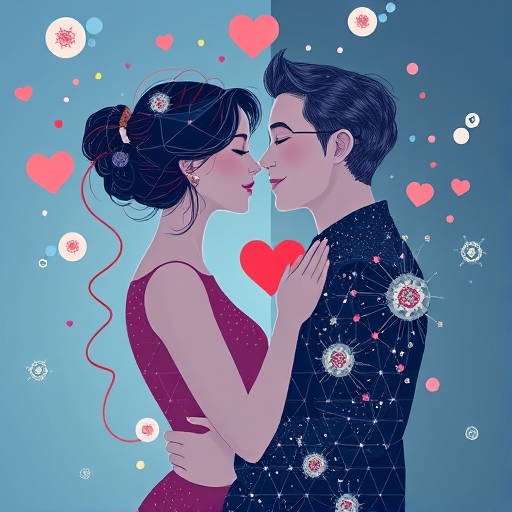The Science of Love: Understanding the Chemistry of Attraction
Meta description: Ever wondered why you’re drawn to certain people? Dive into the fascinating science of love and discover the chemical reactions and biological processes that create those irresistible sparks of attraction.
Introduction:
Love is a complex emotion that has intrigued and inspired humans for centuries. We all know the feeling of being attracted to someone, but what exactly is happening in our brains and bodies when we experience that rush of attraction? The science of love reveals a captivating interplay of biology, chemistry, and psychology. By understanding the intricate dance of hormones, neurotransmitters, and evolutionary biology, we can gain a deeper insight into why we fall for certain people and the powerful hold that love has on us. So, get ready to explore the magical world of love through a scientific lens!
The Biology of Attraction:
Attraction is a multifaceted process involving a delicate balance of biological, psychological, and social factors. On a biological level, our brains and bodies are hardwired to seek out certain characteristics in potential mates. This is largely driven by our evolutionary past, where certain traits signaled health, fertility, and good genes. For example, studies have shown that women often seek partners with symmetrical features, a sign of good health and strong genes. Men, on the other hand, tend to be attracted to physical cues that signal fertility, such as a smaller waist-to-hip ratio in women. These preferences are thought to be driven by our primal urge to find a mate who will produce healthy offspring.

Beyond physical appearance, our sense of smell also plays a crucial role in attraction. Pheromones, chemical signals released by the body, can influence how attracted we feel to someone. While the impact of human pheromones is still a subject of debate, some research suggests that we may be unconsciously influenced by these chemical cues, especially in terms of compatibility and sexual attraction.
The Chemistry of Love:
When we fall in love, our bodies release a cocktail of chemicals that create the intense feelings associated with romantic love. One of the key players is dopamine, a neurotransmitter that plays a central role in reward and pleasure. When we first fall for someone, dopamine levels surge, creating that exhilarating rush of euphoria and craving. Along with dopamine, norepinephrine boosts energy and excitement, while phenylethylamine (PEA), a amphetamine-like substance, contributes to the feeling of being “high on love.”

As a relationship progresses, other chemicals come into play. Oxytocin, often referred to as the “love hormone,” is released during intimate moments like hugging, kissing, and sex. This hormone promotes bonding and attachment, fostering a sense of trust and connection. Meanwhile, vasopressin, another hormone released during sex, is thought to promote long-term commitment and monogamy.
Nurturing Love:
While the initial spark of attraction is driven by biology and chemistry, the longevity of love relies on a myriad of psychological and social factors. Compatibility, shared interests, and similar values all contribute to the foundation of a lasting relationship. Emotional intimacy, effective communication, and mutual support are essential for nurturing love over time.

The science of love also highlights the importance of novelty and excitement in keeping the flame of love burning bright. Novel experiences and challenges, such as trying new activities together or exploring unfamiliar places, can stimulate the release of dopamine, recreating some of those exhilarating early feelings of romance.
Understanding the science behind love can provide fascinating insights into why we fall for certain people and how we can nurture lasting relationships. So, the next time you feel those butterflies in your stomach, remember the intricate




